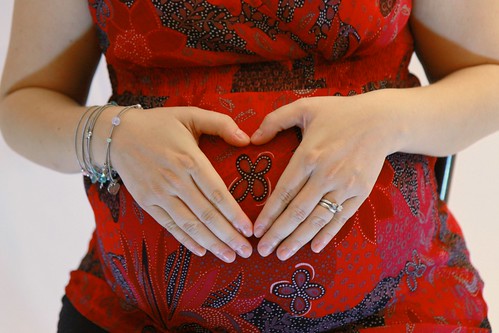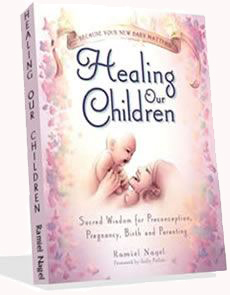Pregnancy Tips: How To Meet Your Required Calcium Intake During Pregnancy
 Most people know that calcium is an important mineral for maintaining healthy bone density throughout your life, but are you aware that your daily calcium requirements during pregnancy and after birth are actually higher than standard recommendations? When you are pregnant and breastfeeding, you are eating for two, which increases your need for nutrients. It is essential that you get enough calcium to not only maintain your own bone mass, but also to provide your baby with the nutrition needed to build their bones as well.
Most people know that calcium is an important mineral for maintaining healthy bone density throughout your life, but are you aware that your daily calcium requirements during pregnancy and after birth are actually higher than standard recommendations? When you are pregnant and breastfeeding, you are eating for two, which increases your need for nutrients. It is essential that you get enough calcium to not only maintain your own bone mass, but also to provide your baby with the nutrition needed to build their bones as well.
Do you know the effects of not getting enough calcium during pregnancy? Most likely you have heard that the baby will take what it needs even if it’s not readily available. The truth is that this is not the case for all nutrients (as an example, your baby can’t remove Vitamin C from your body if you don’t consume any, because this nutrient can’t be stored for long periods of time), it is definitely true with calcium. If your body isn’t supplying the baby with what the nutrients that are needed to grow the bone structure, then the calcium will be taken from your bone structure so that it can be given to the baby! This is the ultimate sacrifice: putting the baby’s nutrient needs ahead of the mother’s.
But, it shouldn’t be necessary to sacrifice your bones for your baby. Keep in mind that even if you don’t notice the effects of low calcium levels now, having your baby sapping calcium from your bones can actually lead to serious health problems later in life, such as osteoporosis. Instead of risking your health, it’s a better idea to be sure you are meeting your daily requirement of calcium intake – which is about 2.2 grams of calcium a day. These calcium levels should be met throughout your entire pregnancy, as well as during lactation. In comparison, a normal adult needs about 1.5 grams of calcium each day, so you can see how much higher your pregnancy requirements are!
Getting Enough Calcium in Your Pregnancy Diet
Of course, the most common way to include calcium in your diet is by consuming dairy products. But, it is importnat to consider the quality of your dairy. When you are eating and drinking dairy products that have been commercially processed, they may actually do you more harm than good. So, be sure that you’re only eating organic dairy products that come from a trusted source. In order to achieve the best benefits from dairy consumption, look for raw dairy products.
If you are looking for raw dairy products in your local area, take a look at www.realmilk.com . Some states have outlawed raw dairy products, and in those situations you may actually be able to join a co-op. With a co-op, some farmers will allow you to buy a portion of a milk cow, and you help by paying for her keep, care, and feeding, and in return then have access to her milk and products just like a regular cow owner would. This option is a great alternative to commercial dairy products, because you may be able to get your family pure, healthy, raw dairy without breaking any local laws! Sometimes, you can buy raw dairy through specialty products and cheeses that aren’t required to be pasteurized before being sold in stores and farmers’ markets.
According to the book Healing Our Children, which contains great information about how you can include more calcium in your healthy pregnancy diet, this is a list of the calcium amounts in various dairy products:
- 1 cup of milk has about .3 grams of calcium, and 3.5 cups of milk have about 1 gram
- 1 cup of yogurt has about .3 grams of calcium
- 3.5 ounces of hard cheese have about 1 gram of calcium. Soft cheeses contain less, but they still have plenty of calcium in them
In some cases, people who are lactose intolerant need to consider getting calcium through non-cow’s milk. Good alternatives include sheep or goat milk or products made from those types of milk. Also, consider trying fermented milk, such as kefir, because most of the lactose is already processed for you through the fermentation process. Other options include eating certain types of fish (like salmon) with some of the bones crushed into the meat, insects, taro root, certain grains, and certain plants. You can also consume calcium from bones, ground shells, egg shells, and antlers, as well as seeds, sea food, spinach, figs, beet greens, nuts, olives, broth made from bones with a small amount of vinegar, cauliflower, and broccoli.
We have listed some great ways to include more calcium in your diet, and the truth is that you really can’t get too calcium while you are pregnanct. Don’t turn to a synthetic supplement, because it won’t be integrated easily into your body. Instead, it is better get your calcium from a healthy pregnancy diet which includes plenty of organic, natural milk products, vegetables, and bone products.
For more information about a healthy pregnancy diet, check out . This book is packed with information about what you should eat during pregnancy in order to maintain good health for you and your baby.
Photo Credit: edgarholguin from







